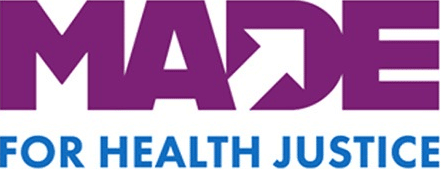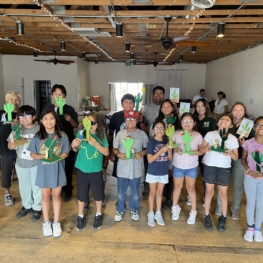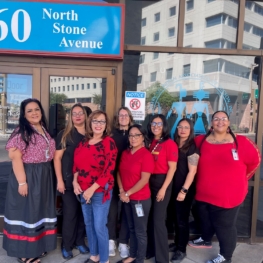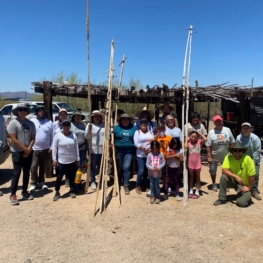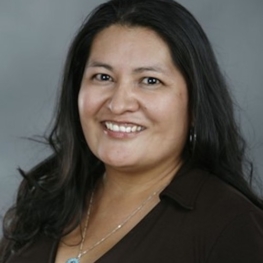Project Name: Promoting Indigenous Models of Assessment (PIMA) (Tucson and Pima County, AZ)
Partners:
- Partners In Health – United States
- Pima County Health Department
- Pima County Community & Workforce Development
- Tucson Indian Center
Promoting Indigenous Models of Assessment (PIMA) aims to ensure that urban American Indians secure, retain, and advance in high-quality employment in Pima County, Arizona. Its goal is to create a more just employment environment for Pima County’s urban American Indian/Alaska Native community, breaking the cycle of intergenerational poverty and improving health and well-being.
The partnership seeks to shift narratives, inform policies, and increase public funding allocations aligned with community priorities by building on traditional knowledge systems and transferring power and decision-making about data systems back to the urban Indigenous community. The Tucson Indian Center — with support from government agencies, Partners In Health — United States, and other partners — will own, drive, and lead this data ecosystem. Data from the ecosystem will be used to inform long-term collaborations with local partners that include the Pima County Health Department and Pima County Community & Workforce Development.
PIMA will develop a comprehensive database that accurately reflects the assets and needs of the urban Indigenous community, assess the extent to which government and community-identified needs are in harmony, and chart a path forward through data-informed decision-making that centers Tucson’s Indigenous population. The partnership will co-develop a common language and a shared vision that informs collaborations on database architecture, data protection practices, and analyses to ultimately bring together the ecosystem’s platform, processes, and people. The Tucson Indian Center’s data ecosystem will rely on input from community stakeholders and build the skillsets of the American Indian/Alaska Native population represented in the data.
Photos courtesy of Dylan Baysa, Tucson Indian Center
Thoughts from Community Leaders
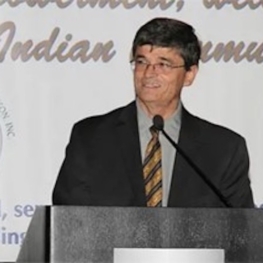
“It is critical to have Native Americans involved in the design of the data system from the very first steps of designing the data elements all the way through data analysis and beyond. We want to collect the right data and make sure the data reflect the needs and aspirations of the Indigenous community. For far too long we have followed a traditional Western public health model. We need to put a cultural spin on this and look at what really matters to the Indigenous population- how do they define health, wellness and wellbeing? If we approach this from a holistic and balanced perspective and talk about the significance for the entire family unit people are more likely to participate. Ultimately, this will impact public policy in a more meaningful way.” – Jacob Bernal, Executive Director, Tuscon Indian Center
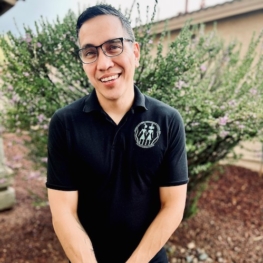

“Quality employment means a good decent pay and wage to support a family, benefits such as health insurance, retirement, time for sickness and more. Having a good quality job provides a foundation to build a healthy and successful family.” – Veronica Boone, Wellness Director, Tucson Indian Center

